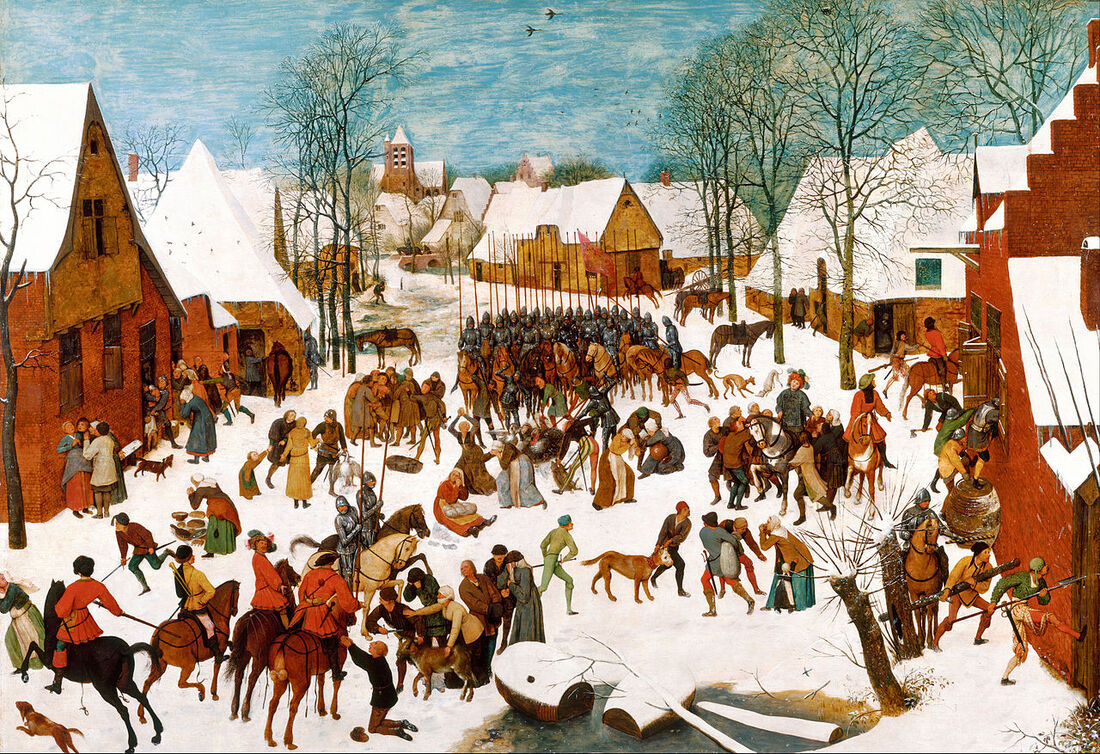|
Redacted Note: When Rudolph II acquired Breugel’s painting, he had all references to his atrocities in the Spanish Netherlands painted over, including the slaughtered children. From a distance, the painting plays tricks on us – a lively village in winter, Carnival perhaps – and would remain just that, until we choose to stand two deep and inspect the detail. A wall of cavalry is enjoying the warmth of its horses’ flanks, lances erect in ritual indifference to the little families trapped on all sides like dammed water. Mercenaries boot down doors. Old men kneel in the snow, barter for mercy. But why is this woman weeping over a mound of ham flitches? Or a mother shielding her pitcher from a soldier’s blade? How well those despots understood the shocking power in a small body. How easy it is to blot out. It becomes a compulsion to find them: the babies who float on the edge of visibility. They begin to surface from under the varnish. A goose, grabbed by the neck, is not entirely goose. The hacked pig, not simply hog. Their tender bones lie silenced under earthen pots, cloth bundles, a gaggle of frantic poultry. Only the grief goes on. Claire Booker Claire Booker lives in Brighton on the south coast of England. Her poetry pamphlets are The Bone That Sang (Indigo Dreams Publishing) and Later There Will Be Postcards (Green Bottle Press). Her poetry has been set to music, filmed, displayed on the side of buses and published widely in literary magazines and anthologies, including Magma, Rialto, and The Spectator. She was awarded a Kathak Literary Award in 2019.
0 Comments
Your comment will be posted after it is approved.
Leave a Reply. |
The Ekphrastic Review
COOKIES/PRIVACY
This site uses cookies to deliver your best navigation experience this time and next. Continuing here means you consent to cookies. Thank you. Join us on Facebook:
July 2024
|




